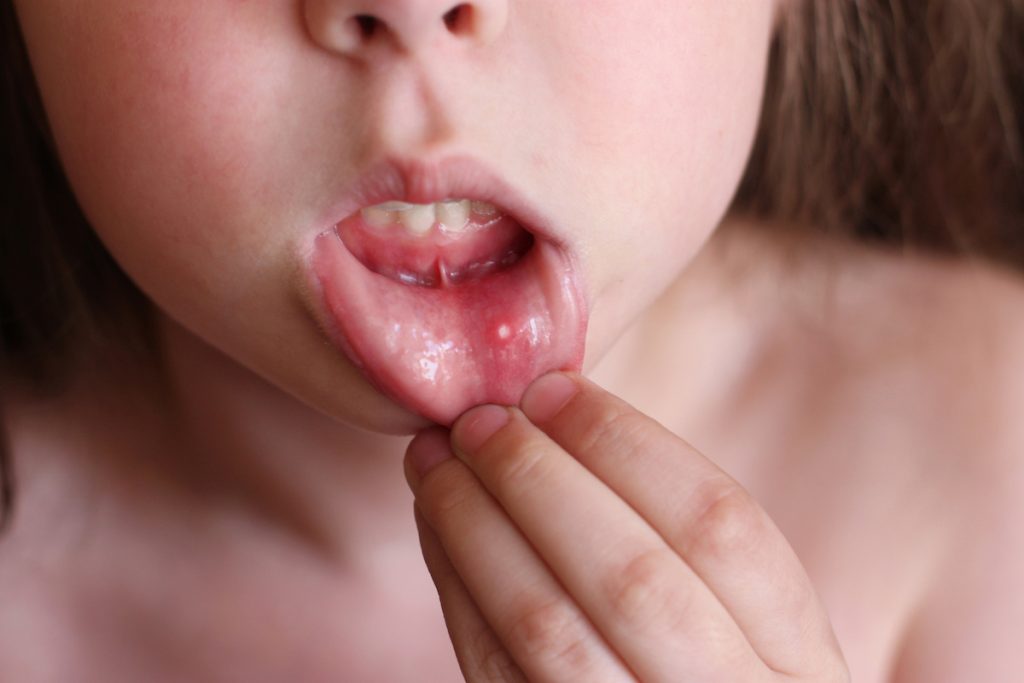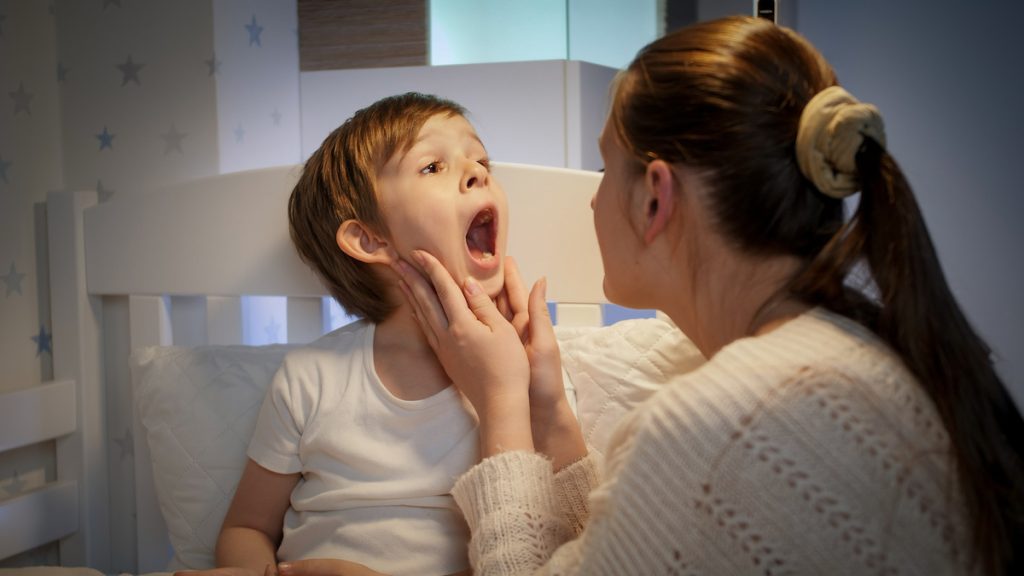Mouth sores, also known as canker sores, are a common problem among children. These small, painful ulcers can make it difficult for children to eat, drink, and speak comfortably. While the exact cause of mouth sores in children is unknown, several factors may contribute to their development, such as viral infections, nutritional deficiencies, and injuries to the mouth.
Fortunately, several remedies are available to help alleviate the pain and discomfort associated with mouth sores, such as over-the-counter pain relievers, topical medications, and home remedies. This article will discuss the causes and remedies of mouth sores in children, providing parents with the knowledge for easily treating canker sores to help their children manage this common condition.
Causes Of Mouth Sores
There are many causes for mouth sores in children. Among them are:
1. Herpes Gingivostomatis
It brings in the same virus that causes cold sores, the herpes virus. It’s an inflammation of the lips and gums. If your child has herpes gingivostomatitis, the mouth sores will accompany other symptoms like irritability and a high fever.
2. Canker Sores
Canker sores often cause mouth sores in children beyond the age of five. These are shallow lesions on the mouth’s soft tissues or around the base of the gums. While generally not contagious, canker sores can be painful, particularly for young children.
3. Hand-Foot-Mouth Disease (HFMD)
Multiple ulcers on the mouth are the most prevalent sign of HFMD, especially when they show up on the tongue and the sides of the mouth. You’ll know your child has HFMD when they also start to develop blisters on the palms of their hands and soles, which, in some instances, spread to other parts of the body. The Coxsackie virus causes HFMD. It’s common in children from one to five years old.
4. Gingivitis
It’s a mild form of gum disease that causes mouth ulcers. Gingivitis is brought about by bacterial infections, mainly through the buildup of plaque and tartar due to poor oral health habits.
5. Poor Diet
Kids with an unhealthy or incomplete diet (low in folic acid, vitamin B12, and iron) are at a higher risk of developing canker sores than those with a healthy, balanced diet.

Remedies For Mouth Sores
Treatment for mouth sores in children depends on many factors, like the symptoms, your child’s age, the severity of the mouth sores, and even their general health.
With viral infections usually being the leading cause of mouth sores, treatment aims to help ease the symptoms. If the root cause is identified as a bacterial infection, then antibiotics may be prescribed by your child’s dentist or pediatrician as well.
Generally, treatment may include any of the following:
1. Stay Hydrated
It can be quite challenging for young kids, but it helps to let them drink cold liquids. The cold sensation helps temporarily numb pain, making it easier for them to take in more fluids.
To encourage even more hydration, offer flavored ice pops or frozen juices. You can also use a straw to keep the liquid from touching the mouth sore. Staying hydrated is very important, so your child can continue to recover at home. Otherwise, once it’s found that your child is already severely dehydrated, a stay in the hospital for intravenous fluids to be administered will be necessary.
2. Give Soft Food
While your kid must keep up with their meals, don’t force them to eat unless you offer soft food. Yogurt, oatmeal, porridge, and soups are good choices.
It’s expected for kids with mouth sores to have a reduced appetite. Don’t worry about this. If you must choose between food and fluids, catching up on the latter is more important.
3. Taking Oral Pain Relievers
With the direction of your kid’s pediatrician or dentist, paracetamol can be given, as needed, for pain. It helps ease your child’s discomfort so they can rest and eat well despite their mouth ulcers.
Acetaminophen can also be prescribed if the mouth ulcer has fever as an accompanying symptom.
The Bottomline
At their best, the points discussed above serve only as a guide for parents to learn more about what’s causing mouth sores in their children and what they could do about it. However, it’s not, in any way, meant to substitute sound medical advice from your child’s pediatrician. Don’t self-medicate, especially when you’re still in doubt. Home remedies can help, but if even those fail, it should signal you to see your doctor. They can give proper treatment, and you’ll also have additional medical information to back up the knowledge you’ve learned from reads like the one above.



